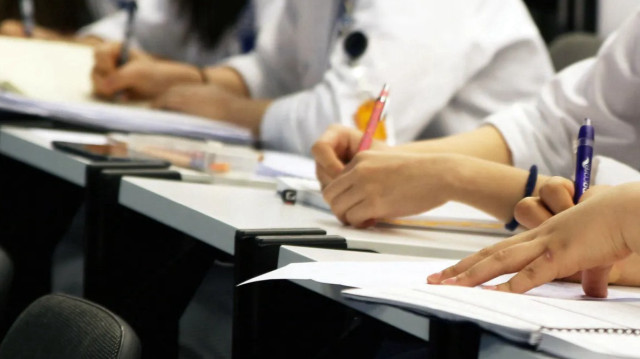
Strong performance attributed to policies of expanding capacity, access to schooling
An article by the Foundation for Political, Economic and Social Research (SETA) highlighted that Türkiye's success in the Trends in International Mathematics and Science Study (TIMSS) 2023 is largely attributed to policies to expand capacity and increase access to higher education.
The TIMSS 2023 results, which assess the mathematics and science proficiency of 4th and 8th-grade students, were announced Dec. 4 by the International Organization for the Evaluation of Educational Achievement.
Türkiye's achievements, in terms of scores and rankings, drew significant national and international attention, with notable improvements in the advanced proficiency levels of students in mathematics and science at both grade levels.
SETA delves into factors behind the success in its article, “The Background of Türkiye's Rise in TIMSS 2023 Results,” offering a comprehensive analysis of policies and initiatives that contributed to Türkiye's strong performance.
In the past 20 years, Türkiye implemented significant reforms to modernize its education system and enhance its global competitiveness. The efforts have included improvements to the physical conditions of school buildings and the integration of technology into educational processes.
Key developments, such as the digitalization of education, diversification of teaching methods, and curriculum innovations, aim to create a more dynamic and interactive learning environment for students. Notably, the Turkish Ministry of Education introduced skill-based questions in the 2017 high school transition exams. The shift is expected to gradually influence all levels of the education system, fostering essential competencies such as analytical thinking, problem-solving, critical thinking and applied skills.
- Türkiye's policy of increasing school enrollment was highlighted
An article published in “SETA Perspective” highlights that TIMSS studies comprehensively evaluate students' academic performance by considering individual, classroom and school-level factors.
The article emphasizes that variables such as the number of books at home, parental education levels, availability of study aids, internet access and having a private study space significantly influence student success. To address those factors, Türkiye prioritized distributing free textbooks and supplementary resources across all grade levels in recent years to increase the number of books at home and improve access to educational materials.
The following points were made in the article regarding Türkiye's performance in TIMSS:
“One of the key educational policies contributing to Türkiye's success in TIMSS has been the expansion of capacity and access to higher education. While it might initially seem plausible that excluding the earthquake-affected region from the sample contributed to a rise in national achievement, a deeper analysis of the TIMSS 2019 data challenges this assumption.
“According to the TIMSS 2019 results, four of the nine provinces in the earthquake-affected region scored above the TIMSS average, while the remaining five provinces scored below. This suggests that the overall educational performance in the earthquake region was relatively balanced, and its exclusion from the sample likely did not significantly impact Türkiye's overall TIMSS performance."

